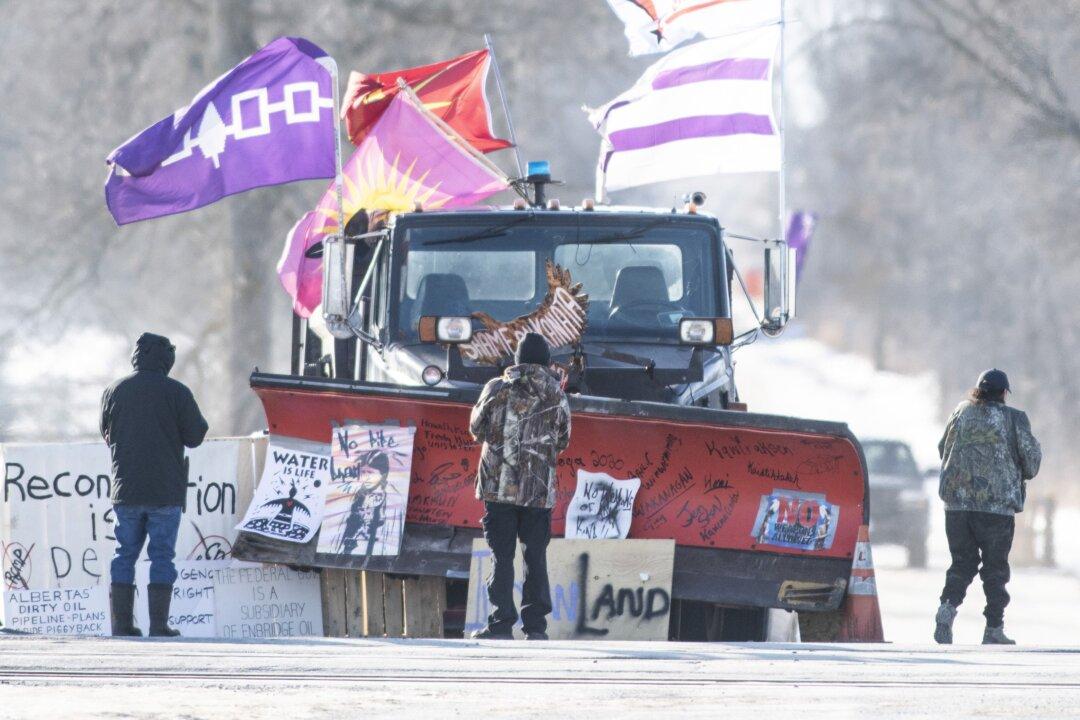SMITHERS, B.C.—Work is expected to resume today on a natural gas pipeline in British Columbia that has been at the centre of protests that have disrupted both rail and road traffic in many parts of the country.
It follows a proposed arrangement that was reached Sunday during talks in Smithers, B.C. involving Wet’suwet‘en hereditary chiefs and senior ministers of the federal and B.C. governments. The agreement still needs the approval of the Wet’suwet’en people.





